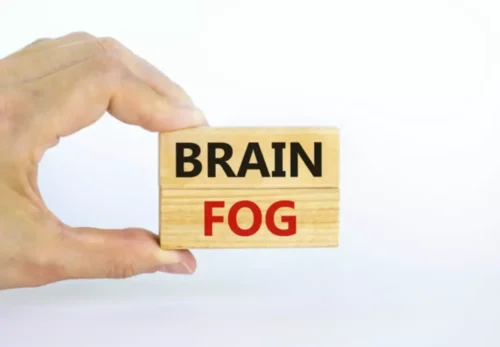Alcohol intolerance Symptoms & causes
We welcome anyone who wishes to join in by asking for support, sharing our experiences and stories, or just encouraging someone who is trying to quit. Please post only when sober; you’re welcome to read in the meanwhile. Individuals with pre-existing respiratory conditions, such as allergies or asthma, may be more susceptible to alcohol-induced sneezing. You’re more likely to have allergies if you have a family history of allergies.
Is alcohol-induced sneezing a sign of an alcohol allergy?
But, if your nose is all stuffed up or runny after just a few sips of wine, this process probably isn’t proceeding as smoothly for you as it does for other people. As it turns out, understanding your sneezing after drinking alcohol alcohol-induced stuffy nose starts with understanding how your body processes alcohol — or tries to, anyway. Aldehyde dehydrogenase (ALDH2) is an enzyme that your body uses to digest alcohol.
Risk factors

But alcohol tolerance is more complicated than just being « a lightweight » or not. In fact, alcohol intolerance is a metabolic disorder that doesn’t have anything to do with how many drinks you can down before your beer goggles switch on. Your body holds on to the nutritive parts of what you eat and drink, but, otherwise, what goes in must also come out. Paying attention to which beverages cause symptoms can help people manage their alcohol intolerance. When eating out, they should make a point of asking about ingredients to make sure they do not contain alcohol, because even a small amount can cause a reaction. A genuine alcohol allergy is very specific and rather rare.
- You had a long week, and you opened that bottle of wine to help you relax — but instead you wound up with a stuffy nose you now have to deal with.
- These antioxidants help neutralize unstable molecules that can damage your cells.
- Symptoms are more likely to be a reaction to the ingredients in a drink, or the alcohol causing other types of allergies to worsen.
- A person with severe allergies should carry one with them at all times, in case of a serious allergic reaction.
- But there aren’t any tests for sulfite or histamine sensitivity.
The 7 Best Foods and Drinks for a Hangover (and 4 to Avoid)
While alcohol content does not directly cause sneezing, it can contribute to nasal congestion or irritation, potentially triggering sneezing in some individuals. Nonallergic rhinitis most often doesn’t cause an itchy nose, eyes or throat. If you’re frequently sneezing after drinking, you must see a doctor as there may be an underlying condition that needs to be treated. Sneezing is usually not harmful, but it can be a nuisance. If drinking from a glass makes you sneeze, try drinking through a straw instead. This will help reduce your nose’s contact with the drink and make it less likely to trigger a sneeze.
- However, there are certain things you can do to keep your nose clear and free of extra mucus, which may help reduce sneezing after eating.
- As it turns out, understanding your alcohol-induced stuffy nose starts with understanding how your body processes alcohol — or tries to, anyway.
- A food allergy is your immune system’s response to a food protein that the body sees as harmful.
- If you’re one of the many people who feel hungover after just 1 drink, here’s what you need to know about alcohol intolerance.
- You should never ignore the symptoms of an allergic reaction.
Some medications can stop your ALDH enzymes from working as well as they normally do. If you drink alcohol while taking these medications, you can experience alcohol intolerance. People with alcohol intolerance may notice one or more of these symptoms after taking a few sips of alcohol. Others might only develop them shortly after finishing 1 or 2 drinks.

Sulfite and histamine sensitivity
Gustatory rhinitis and snatiation seem to be common causes, but both are still poorly understood. However, there are certain things you can do to keep your nose clear and free of extra mucus, which may help reduce sneezing after eating. If you’ve ever experienced swelling of the tongue or throat or trouble breathing after drinking beer, you should stop drinking beer until you’ve seen a doctor. Your symptoms can also be due to an interaction between beer or alcohol and any medication you’re taking. Be sure to tell your doctor if you’re taking any medications or supplements. Nearly 1.2 percent of adults in the United States are allergic to wheat.

Can you suddenly develop an alcohol allergy?
If this phenomenon causes significant distress or worsens over time, it is recommended to consult with a healthcare professional to rule out any underlying issues. People may also have an allergic reaction to specific ingredients in alcoholic drinks rather than the alcohol itself. While the main ingredient in beer is water, people with beer allergy symptoms are often sensitive to beer ingredients like wheat, yeast, sulfites, and histamine.
- Beer ingredients that commonly cause allergies or sensitivities include barley, gluten, histamines, sulfites, and yeast.
- People with an alcohol intolerance or sensitivity can start feeling sick after just a few sips of alcohol.
- If your favourite tipple leaves your cheeks burning, then yes – you may well have an alcohol sensitivity or intolerance, says nutritionist Jade Taylor, of Kitchen Home.
- However, if you consistently experience severe sneezing or other concerning symptoms, it is recommended to consult a healthcare professional.
- More severe symptoms of a beer allergy include shortness of breath, swelling of the throat or tongue, and loss of consciousness.
- The best way to manage a beer sensitivity or allergy is to avoid drinking beer or choose beers that do not have the ingredient (like gluten) that are causing your symptoms.
